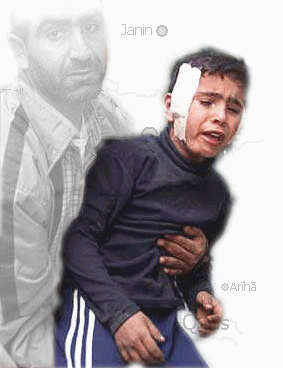“Palestine Monitor:
An information clearing house”
The main goal of the unit is to strengthen the civil society and to enhance the practice of democracy in Palestine. Since its establishment, HDIP has been playing a lead role in contributing to the development of civil society in Palestine thorough enhancing the role played by its organizations.
To do this hdip seeks to build an enabling environment in which the civil society organizations can flourish and work effectively.
Respect the human rights, promoting the civic culture, democratic practices, participation are values and Pillars of the civil society unite.
At the Palestine Monitor, we gather, produce, and distribute information including press releases, statistics, fact sheets, updates, analysis, and articles for publication on our website (www.palestinemonitor.org) and in other outlets. We focus on the political, legal, social, and health issues brought about by the Israeli occupation.
We have more than 1,500 foreign press contacts and 20,000 subscribers to our email list, on which we distribute updates and other information. We also have a section on activism on our website which users can access in order to find out how they can act both globally and locally to help bring justice to this region. Our website receives no less than 50,000 hits per day, and we are constantly sent questions and comments via email from students, researchers, journalists, and ordinary citizens. Phone calls from journalists and researchers are also common, and we often provide details and data for use in internationally-published articles.
Our office also liaises with other NGOs in the area, including the UN Office for the Coordination of Humanitarian Affairs, Al-Awda, Arab Media Watch, and the Israeli Committee Against House Demolitions. Our office helps follow up and coordinate the activities of the Grassroots International Protection for the Palestinians (GIPP), which aims to mobilize international support for the Palestinian cause and people. We attempt to enhance ties, contacts, and public relations with local and international TV and news agencies.
We have
databases of maps, pictures, and statistics which can be accessed
publicly as well as our renowned PalMon Folders, which contain
updated fact sheets about all aspects of the Second Intifada, the
Israeli Occupation, and the international response, including
American financial aid and UN and ICJ resolutions. These folders
are used by many NGOs and passed out to interested parties when we
have workshops, meeting, and other events. Our folders contain 12
fact sheets as well as several maps and analytical articles by Dr.
Mustafa Barghouthi regarding the situation here.
Our database of Palestinians killed during the Intifada is one of the most detailed available from any source and is an invaluable resource for many journalists and researchers.
We hosted several international volunteers in 2004 from Italy, England, America, and other countries. Many of them travel around the West Bank to take pictures, conduct interviews, and write eyewitness pieces, as our Palestinian staff has a difficult time traveling freely.
Our readers and subscribers depend on the Palestine monitor for our regular updates, information, and other materials because they are aware that due to institutional constraints and other conflicts of interest, Western corporate media like CNN or BBC are not always able to report in an accurate or balanced way. There is also no way for “big media” to adequately report on the “little stories” of every day life under occupation that really describe and embody what foreign occupation and oppression are all about. We provide a respected and much-needed alternative source of information.
We are a small office with only a few staff members, but the work we do is important for many people. We hope that at some point when and if there is more money available, we can hire more people to travel throughout the West Bank and take photos and make reports for us as well as compile and update our information more frequently. A young Palestinian journalist from Gaza has been very supportive of our efforts and has supplied us with reports and photos regarding the situation there. Unfortunately he has slowed his contributions because he would like to be paid for the work he does, at least enough to be able to cover his expenses.
We do a lot of great work, but we also have a lot of room to grow, and we hope we will continue to be supported in our efforts to bring the Palestinian cause to the world in a more balanced and accurate light.
